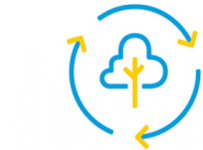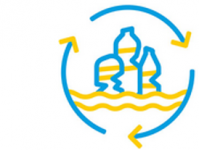
LE PORTEFEUILLE ET LES SERVICES TRUCIRCLE™ DE FUNCTIONAL FORMS
La société humaine est actuellement confrontée à l’un de ses plus grands enjeux et nous devons travailler ensemble pour trouver des solutions. Pour SABIC, le plastique ne devrait jamais se retrouver dans l’environnement, dans les décharges ni dans nos océans, mais bien plutôt être réutilisé pour fabriquer des produits neufs.
Cette vision nécessite une transformation radicale de la chaîne de valeur. Nous travaillons avec nos partenaires en amont et en aval pour réinventer et défricher le chemin vers une économie circulaire, pour le bien des populations et de la planète. Notre portefeuille de produits et de services TRUCIRCLE™ joue un rôle important dans la concrétisation de notre vision et la fermeture de la boucle des plastiques de post‑consommation.
Le portefeuille de produits et de services TRUCIRCLE™ est une vitrine d’innovation de SABIC. Nous voulons que les fabricants aient accès à des matériaux plus durables. Le consommateur final pourra ainsi acheter en confiance des produits dont il saura que les matériaux qui les composent peuvent être recyclés et repositionnés, ou qu’ils sont fabriqués par des méthodes qui peuvent contribuer à protéger les ressources naturelles de notre planète.
PORTEFEUILLE ET SERVICES TRUCIRCLE™ DE SABIC FUNCTIONAL FORMS
La division Functional Forms de SABIC propose actuellement deux catégories de produits durables:

DES PRODUITS CERTIFIÉS RENOUVELABLES :
pour réduire l’utilisation des combustibles fossiles
Produits en plaque et en film LEXAN™ à base de résines et de produits chimiques issus de matières premières biosourcées qui ne concurrencent pas la chaîne alimentaire et contribuent à atténuer le réchauffement climatique

DES PRODUITS RECYCLÉS MÉCANIQUEMENT :
pour maximiser la valeur des déchets
Produits en plaque et en film LEXAN™ à forte teneur en matières recyclées de post‑consommation qui améliorent l’aptitude à la mise en œuvre et les propriétés de l’utilisation finale.
Si vous avez besoin d’explications supplémentaires sur la nouvelle initiative TRUCIRCLE™ ou si vous voyez une opportunité d’application, merci d’entrer en contact avec nous ou avec l’un de nos spécialistes de l’industrie:
- M. Bart Kiekens bart.kiekens@sabic.com
- Mme Alda Shabanaj alda.shabanaj@sabic.com
FAQ TRUCIRCLE™
What does TRUCIRCLE™ refer to?
In 2019, SABIC launched our ground-breaking TRUCIRCLE™ portfolio and services for circular solutions that can help our customers and brand owners to manufacture sustainable products to meet the growing challenges of today’s society.
SABIC’s TRUCIRCLE™ portfolio and services for circular solutions span; design for recyclability, mechanically recycled products, certified circular products from feedstock recycling of used plastics and certified renewables products from bio-based feedstock.
What is a polycarbonate based on certified renewable feedstock?
At SABIC we have utilized our value chain and unique position in Europe to produce polycarbonate using second generation renewable feedstock’s, not in competition with the food chain, to make a resin with an equal performance to that produced from fossil naphtha.
What exactly is the ISCC-PLUS certification scheme?
It is an independent system for the chemical industry to prove the sustainability of bio-based products. The scheme involves strict traceability and requires a chain of custody based on a mass balance system.
In which applications can the polycarbonate film and sheet based on certified renewable feedstock be used?
In principle, all applications currently using or that potentially will be using SABIC materials. However, only if the polycarbonate grades are produced in Bergen op Zoom, as this is the only (for now) ISCC-PLUS certified site where PC is produced. It is the customer's responsibility to inspect and test our product(s) regarding the suitability of their product(s) for themselves and its customers’ particular purposes.
What is the result of the LCA (Life Cycle Analysis) study?
SABIC’s cradle-to-gate peer-reviewed LCA study for our polycarbonate (PC) based on certified renewable feedstock solution reveals potentially significant reductions in carbon footprint (up to 61%), primarily enabled by the sequestration (removal) of carbon by biomass, and fossil depletion impacts (up to 35%) for the production of polycarbonate resin based on the incorporation of renewable feedstock, in comparison to fossil-based polycarbonate production.
The results also show potential environmental trade-offs with respect to marine eutrophication and water consumption.
Pour consulter d’autres FAQ au sujet du portefeuille TRUCIRCLE™, veuillez cliquer ici.
 Deutsch
Deutsch
 English
English
 Española
Española
 Français
Français
 italiano
italiano
 Portugues BR
Portugues BR
 日本語 (Japanese)
日本語 (Japanese)
 中文 (Chinese - Mandarin)
中文 (Chinese - Mandarin)
 한국어 (Korean)
한국어 (Korean)

